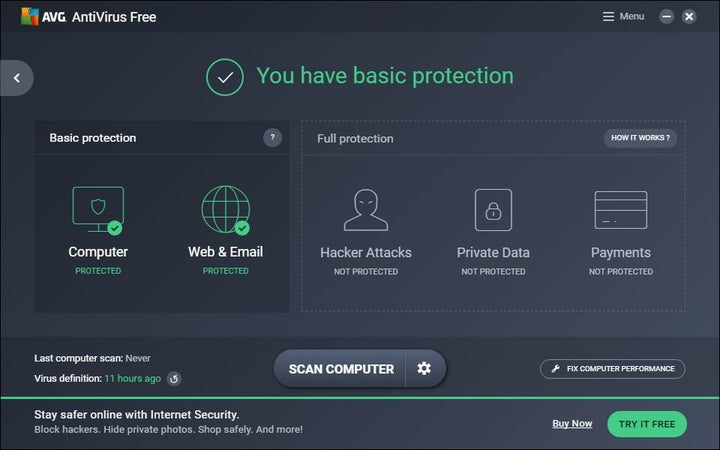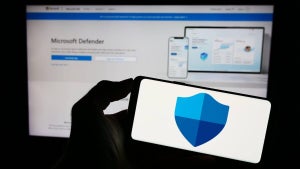How to Identify and Avoid Holiday Phishing Scams

- December 16, 2024
- Updated: December 16, 2024 at 3:17 PM
We love giving gifts at Christmas. The joy of sharing special moments with family, friends, and neighbors makes this season magical. But unfortunately, cybercriminals also know this and exploit the festive spirit to scam people in countless ways. Today, we’ll teach you how to recognize and avoid phishing tactics commonly used during the holidays.
While phishing scams are a year-round threat, the weeks leading up to Christmas are prime time for cybercriminals. They combine various methods into an onslaught of attacks, hoping to catch people off guard just once. The key to avoiding these scams is to stay alert, follow best practices, and use reliable antivirus software.
Why Does Phishing Spike During the Holidays?
During the holiday shopping season, scammers prey on the stress of online shopping. They send fraudulent emails posing as legitimate companies, such as shipping services, retail chains, or payment platforms.
Their goal is to exploit users who hastily click on links without verifying their authenticity. But phishing traps extend beyond emails, which makes these scams even more dangerous. Below, we’ll outline the most common holiday scams so you can protect yourself during this joyful season.
The Five Most Common Holiday Phishing Scams
1. Holiday Discounts: The Classic Phishing Lure
It’s hard to resist a great deal online, especially during Christmas. But after Black Friday, those “too-good-to-be-true” discounts should raise red flags.
Cybercriminals often create fake websites mimicking popular brands and promote fake offers. These scams are designed to steal your personal data by prompting you to enter sensitive information. Always double-check that the site is legitimate before proceeding.
2. “We Couldn’t Deliver Your Package” Emails
The most popular phishing attack during the holiday season revolves around shipping logistics. Scammers know that people send and receive many packages during Christmas.
Victims receive an email appearing to be from a legitimate delivery company, claiming a package couldn’t be delivered. The email conveys urgency, warning that the package won’t arrive on time for Christmas unless action is taken immediately.
The email directs recipients to click a link to reschedule delivery. This link often leads to a phishing website or installs malware on the user’s computer. Avoid clicking on these emails; instead, verify delivery issues directly through the company’s official website or the retailer where you made the purchase.
3. Electronic Christmas Cards: Malware Hidden in Cheer
E-cards are a popular and cost-effective way to send holiday greetings to friends and family. Scammers exploit this format to trick victims into downloading malware.
When users click a link to view the card, they risk downloading adware, spyware, or a trojan virus. Warning signs of a malicious e-card include:
- Spelling errors in the email.
- An unknown sender.
- Suspicious links or attachments, especially those ending in “.exe.”
4. Charity Scams: Exploiting Holiday Generosity
Cybercriminals know that people are more charitable during the holidays. To exploit this goodwill, scammers create fake websites that imitate legitimate charities.
Once users visit these fake sites, they’re prompted to donate by entering their credit card details and personal information. Scammers use this data to steal money or commit identity fraud.
To safely donate, visit the charity’s official website directly or use trusted banking apps that allow donations. Avoid clicking links in unsolicited emails.
5. Fake Surveys and Prizes
Another common tactic involves fake surveys or prize giveaways. Users receive an email claiming they’ve won a gift card or a prize, but they need to fill out a survey or provide personal details to claim it.
These scams are designed to harvest sensitive information or install malware on your device. Always verify the legitimacy of these offers and avoid clicking on links in unsolicited messages.
Knowledge and Antivirus: Your Best Defenses
Now that you’re familiar with the techniques cybercriminals use during the holidays, it’s up to you to stay vigilant. Share these tips with friends and family during holiday gatherings to help everyone enjoy a safer season.
Finally, don’t underestimate the value of a reliable antivirus program. When human caution falls short, antivirus software is a crucial safety net. If you’re looking for an effective yet free option, consider AVG AntiVirus Free—one of the best solutions available in 2024.

Stay Safe and Celebrate the Season
Christmas is a time to spread joy, not worry about cyber threats. By staying alert, recognizing phishing tactics, and installing robust antivirus software, you can focus on what truly matters—spending time with loved ones. Make security a part of your holiday preparations this year. Protect yourself, your family, and your devices, and enjoy the festive season to the fullest. Happy Holidays!
Journalist specialized in technology, entertainment and video games. Writing about what I'm passionate about (gadgets, games and movies) allows me to stay sane and wake up with a smile on my face when the alarm clock goes off. PS: this is not true 100% of the time.
Latest from Chema Carvajal Sarabia
- Don't want to pay 25 dollars a month for YouTube TV? There's a trick
- How to Avoid Malware Infections from Holiday Greetings and Electronic Christmas Cards
- Does Microsoft want to invest in Bitcoin? Shareholders say no, but there's a lot to tell
- The award for best video game of 2024 goes to… here are all the winners of The Game Awards 2024!
You may also like

Microsoft fixes a serious security issue that affected Windows Defender
Read more

Don't want to pay 25 dollars a month for YouTube TV? There's a trick
Read more

Meta is willing to do whatever it takes to prevent OpenAI from becoming a for-profit company
Read more

ChatGPT 01 vs 4.0: What are the differences and when should we use one or the other
Read more

This miniseries based on real events has unexpectedly made it into the top of Netflix's most-watched list
Read more

Optimizing Your PC for the Holidays with CCleaner Free
Read more